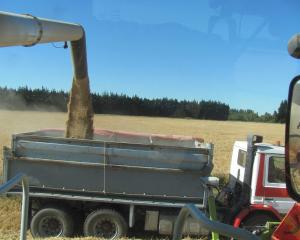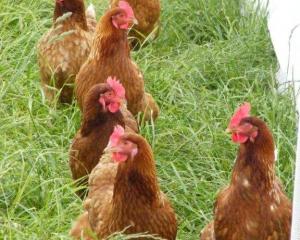Prime Minister Jacinda Ardern has hit back at a farming lobby group’s suggestion an emissions plan will "rip the guts out of small-town New Zealand", saying it is largely based on their own proposals.
The world-first scheme that will require farmers to pay for agricultural emissions in some form by 2025 went out for consultation yesterday.
It marks a significant step in a long process to account for agriculture in climate change policy, which make up half of the country’s greenhouse gas emissions.
It has already drawn criticism from some farming lobby groups who see it as a step too far that will only push emissions offshore, while environment groups say it does not go far enough.
Consultation report Te tatai utu o nga tukunga ahuwhenua-Pricing Agricultural Emissions says the scheme is expected to be signed off by the Cabinet in 2023.
The system of farmgate pricing has been worked on since 2019 after calls from the sector to have a farmgate emissions pricing system that would reward climate-friendly farmers.
The Government has committed to a 10% reduction in methane emissions from agriculture and landfills by 2030, going up to a 24%-47% reduction by 2050, compared with 2017 levels. It comes alongside a net-zero emissions target for 2050.
The Government has accepted most of the recommendations made by the He Waka Eke Noa industry partnership.
Federated Farmers national president Andrew Hoggard strongly opposed the plan, saying it will "rip the guts out of small-town New Zealand" by facilitating the conversion of sheep and beef farms into trees.
"Federated Farmers is deeply unimpressed with the Government’s take on the He Waka Eke Noa proposal and is concerned for our members’ futures," Mr Hoggard said.
"We didn’t sign up for this. It’s gut-wrenching to think we now have this proposal from the Government which rips the heart out of the work we did."
The Government’s plan also estimated to reduce land in sheep and beef farming by 20% by 2030, compared with 5% for dairy.
Beef and Lamb New Zealand was similarly worried the Government had proposed to reduce the categories of sequestration recognised.
"New Zealand sheep and beef farmers have more than 1.4 million hectares of native forest on their land which is absorbing carbon, and it’s only fair this is appropriately recognised in any framework from day one," chairman Andrew Morrison said.
Ms Ardern said it was a "pragmatic proposal" that would reduce agricultural emissions while making produce more sustainable and enhancing the "export brand".
The proposal also differed from the sector’s wishes that levies paid through the scheme were set by the sector, and instead would be set by the Government.
She believed the Government setting the levy was a "more traditional" approach.
Farmers did retain the ability to monitor their own farm emissions, and levy revenue would be recycled to farmers through technology, research and incentive payments.
The Government also ultimately rejected Climate Minister and Green Party co-leader James Shaw’s preferred option for an overall emissions cap set and then letting the market sort the price.
The Climate Change Commission would play a "critical role" in setting the levy by acting independently on evidence and research, Ms Ardern said.
The farmer-funded DairyNZ said there was still work to do on emissions pricing for agriculture.
"Today’s Government announcement is another step toward an agricultural emissions pricing system — but there is still work to do to get it right, and make sure it is fair and practical for farmers," DairyNZ chairman Jim van der Poel said.
National’s agriculture spokeswoman Barbara Kuriger said they were committed to reaching the country’s emissions targets, but yesterday’s announcement put consensus with the industry at risk.
They were concerned about modelling showing international emissions could increase as jobs and production were shifted offshore as a result of measures here.
The plan also did not allow farmers to earn extra income from some forms of on-farm planting and carbon capture, she said.
Act New Zealand primary industries spokesman Mark Cameron echoed Mr Hoggard’s concerns regarding sheep and beef farm conversion.
"Under the proposals, most sheep and beef farmers would be better off cashing up by selling their land for permanent carbon storage. Many meat processors will shut down, collapsing many small regional towns," he said.
In the report, the Government admitted having concerns about the tight timeframe and that getting the system off the ground would "require a significant amount of work, relying on a tightly sequenced series of events".
Rural advocacy group Groundswell NZ yesterday called for the resignations of Mr van der Poel and Mr Morrison.
"The release ... of the Government’s emissions pricing recommendations represents a cumulation of years of weak and ineffective advocacy, which has put our industry in an untenable position." Groundswell NZ co-founder Bryce McKenzie said yesterday.
"We have no confidence the current industry leadership has the will or ability to stand up to unworkable regulations and provide the vision needed for better policy outcomes.
"The Government has given the green light to further widespread afforestation of food-producing land, with rural New Zealanders told to simply accept the inevitable demise of their communities," he said. — The New Zealand Herald
By Adam Pearse















